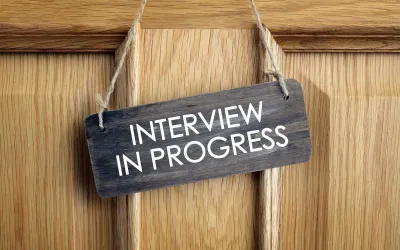
11 Points To Ensure Your Hire Gets Off To A Flying Start
The interview hiring process took six months, following countless meetings and teleconferences. Finally, the candidate accepted the position of country manager of the budding start up. Both the company and candidate were embarking on new territory.
As part of the transition process, we put together 11 points to ensure a smooth transition. A senior executive read them, grinned from ear to ear and let out a belly laugh. She told me that these were great ideas, which are seldom followed by companies. As she walked away, I asked myself: why would a company spend months and tens of thousands of dollars on the vetting process and yet not follow a clear plan to ensure success?
Here are some suggestions to get your candidate off to a flying start!
-
Be SMART
Begin with the end in mind. Fast-forward 24 months and ask: what has been achieved? Ensure that the goals are specific, measurable, attainable, realistic and timely (SMART). Create opportunities for early wins. Tell success stories – success leads to success. Ask if there is someone in the organization who has a similar background and has been successful in a similar role?
-
Assign a mentor
Designate someone in the organization who knows how things are really done to serve as a mentor. This gives the new employee an independent channel for questions that he or she might otherwise not want to ask a boss, colleagues or subordinates.
-
Know your company culture
All companies have quirks and idiosyncrasies. Knowing what you know now, ask what you would want to know about the company. What is the real story, with warts and all?
-
Be seen and heard
Provide opportunities for the new executive to be seen, past accomplishments to be recognized and clear expectations to be set for the future. Have the new hire meet the key stakeholders.
-
Expect and reinforce success
eople generally live up to expectations placed on them by others. Always edify. Remember first impressions last; be positive about everything up and down the line of command.
-
Engage in Q&A
If the candidate is Japanese, he or she may speak English well and may have been working for a multinational for several years. Culturally, the Japanese tend to ask fewer questions. However, questions do exist! Non-native speakers of a language, even those who seem fluent, may miss nuances and certain idiomatic expressions. Misunderstandings may arise from this, which does not reflect a lack of knowledge or uncooperativeness.
-
Have a cohesive strategy.
Japanese, as a rule, need a lot of preparation time and input during the initial stages. They will then, however, follow the plan to the letter and can be very detail orientated. Provide clear milestones.
-
Beware of information overload
Provide the necessary processes for information to be gathered and processed.
-
Look for teachable moments
There are times when the business does not run according to plan. We often learn more from failure than success. Obstacles can be the touchstones of growth. Look for examples of people who have joined and succeeded or failed. What can be learned?
-
Evaluate
Ensure that the candidate is clear about how she/he will be evaluated, both quantitatively and qualitatively. Reinforce KPI’s and how will they be evaluated?
-
Quantify on boarding
On a scale from 1 to 10, has XYZ been achieved? If it is not ranked a 10, then ask, “What would need to happen for XYZ to be a 10?
Reference:
Michael Watkins (2003). The First 90 Days
You may also enjoy
Lessons learned from the Firing line of Interviewing in a Bi-lingual and Bi-cultural Environment
Eliminating Bias from the Interview Process
Passion & Principles: Keys to Unlocking Talent
Morunda should be your choice of recruiting partner in Japan and Asia Pacific. Why? Because we live and breathe the pharmaceutical industry in Asia and the Pacific—we’re specialists!
- Morunda has completed over 400 managers to director-level placements since 2001.
- A cultural understanding of what it takes to secure top talent
Over one hundred thought leadership articles published. - We hold regular seminars for candidates and clients alike with industry experts.
- We understand the market, not only today, but where it is heading in the next 12 to 18 months
Recent Posts
- Time Kills Deals: Why Speed is Your Most Powerful Hiring Tool
- Beyond the Paycheck: The Four Pillars of Attracting Top Talent in 2026
- The Experience Premium: Why 55 is the New 40 in Tokyo
- Beyond the “Black Swan”: Why Life Science Firms Must Pivot from Perfection to Potential in 2026
- The “Player-Coach” Era: Why Your Technical Pedigree is No Longer Enough


